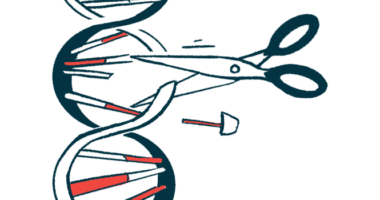FDA approves Filsuvez to treat dystrophic and junctional EB
Topical gel to treat partial thickness skin wounds in infants and adults

The U.S. Food and Drug Administration (FDA) has approved Filsuvez (birch triterpenes) to treat skin wounds in patients with dystrophic epidermolysis bullosa (DEB) or junctional epidermolysis bullosa (JEB) ages 6 months or older.
The announcement makes Filsuvez the first FDA-approved therapy for JEB, according to Chiesi Global Rare Diseases, which earlier this year gained rights to Filsuvez when it acquired the therapy’s then-developer Amryt Pharma.
“We are grateful for the support of those living with EB and their dedicated caregivers which allowed us to reach this landmark FDA approval and proudly provide FILSUVEZ as a solution for wound care management,” Giacomo Chiesi, head of Chiesi, said in a company press release.
DEB and JEB are among the most sever types of epidermolysis bullosa
DEB and JEB are among the most severe types of EB, marked by skin that’s fragile and prone to wounds and blisters. The FDA’s approval of Filsuvez specifically indicates the topical gel for the treatment of partial thickness wounds, which are wounds that do not extend past the skin’s dermis layer.
The therapy, which contains compounds from birch tree bark that are thought to activate skin cells and lessen inflammation to promote healing, is applied to sites of wounds when bandages are changed.
“Today marks an important milestone for those living with junctional EB, as FILSUVEZ is the first FDA approved treatment for this variant of the disease,” said Brett Kopelan, executive director of the EB-focused nonprofit debra of America.
“The FDA’s decision … provides those living with EB a safe and effective treatment option for the most prominent and difficult symptom of EB, open wounds that may not heal,” Kopelan added.
Filsuvez led to complete wound closure in 41.3% of patients in Phase 3 trial
Filsuvez was approved for DEB and JEB in the European Union and in Great Britain last year. However, the FDA rejected an application for the gel therapy’s approval in February 2022, saying available data wasn’t sufficient data to support its effectiveness.
The agency’s decision to approve Filsuvez was supported by data from a Phase 3 clinical trial dubbed EASE (NCT03068780), which tested the therapy against a control gel in more than 200 people, infants to adults, with JEB or DEB.
Results showed that 41.3% of patients treated with Filsuvez had complete closure of the target wound within 45 days of starting treatment, compared with 28.9% of those on the control gel. Longer-term findings showed wound burden was reduced by more than 50%, on average, after more than a year of Filsuvez treatment.
According to treatment’s FDA label, the most common side effects are hypersensitivity and skin reactions at the application site.
The therapy’s market price was not yet available.
“I want to thank Chiesi for their years of close collaboration with debra of America and their dedication and commitment to bringing a treatment option forward for those with dystrophic and junctional EB. I also want to thank the patients who participated in the clinical trials to bring this therapeutic option to fruition,” Kopelan said.







